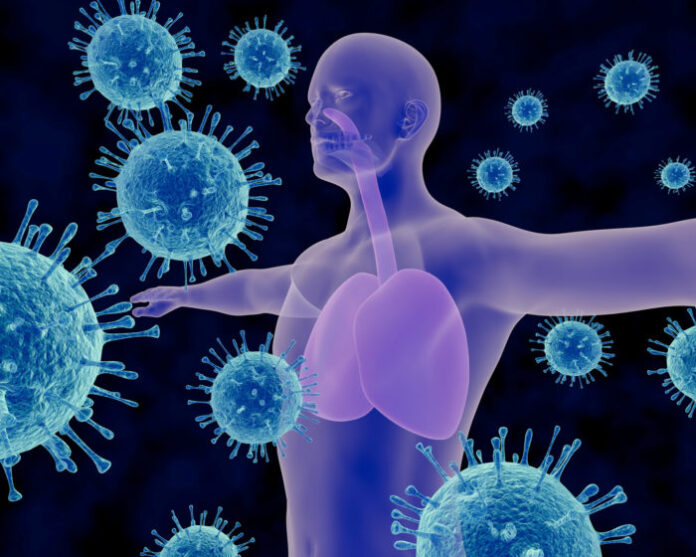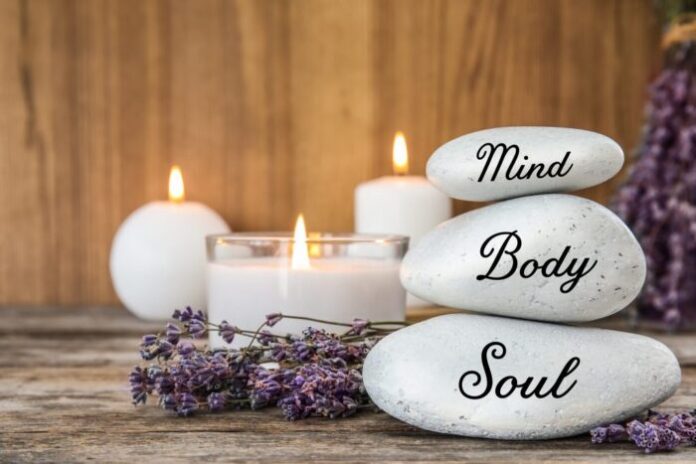No one doubts about the abilities of Western medicine to cure numerous illnesses, provide long-term treatments, and even prevent diseases. However, more and more people are interested in holistic medicine. Many patients switch to holistic therapies just as much as western medicine; for reasons we’ve detailed down below.
The truth is that patients have been let down by conventional treatments. It’s the case of people with addiction who have to resign living with their addiction forever. Cancer patients or patients with autoimmune diseases are also looking into holistic medicine, as conventional medicine isn’t enough for their condition. A meta-analysis from 2012 revealed that 50% of people with cancer tried some complementary therapy at some point throughout their disease. We still don’t have any scientific proof that holistic therapies prevent or treat cancer in any way, and there’s very little research showing the benefits of some symptoms. However, people feel and look better and healthier, which is enough proof for many people.
No matter the category, people turn to holistic treatments more often than you think, so keep reading to find out about the main reasons for which holistic medicine has become the no.1 opponent for western medicine.
1. It saves on medical expenses

When you know how you can improve your health, you’re saving money in the long run since you’re not going to get sick that often. Eliminating alcohol or tobacco from your life, switching to plant-based and organic food benefits your body, increasing the chance of staying healthy. Add the right amount of supplements and vitamin drips, and you get to understand why people stay healthy for a long time. They no longer get sick nor need a prescription, which only saves them money for the future.
2. It works with the body, and not against it

More often than not, western medicine works against the body, trying to control the symptoms and put an end to the disease. It’s not the case of holistic treatments, which work together with the body’s immune system to sustain its healing. There’s instead a gentle approach to cure in the case of holistic therapies, which many patients appreciate.
Keep in mind that many doctors are using both conventional and alternative therapies for addressing health conditions. Plenty of hospitals provide patients holistic treatments as well, as the purpose is the same: healing the patient.
3. It concentrates on preventing diseases

People adopting the holistic medicine principle focus on preventing illness and not treating it after it installs. Holistic medicine provides numerous treatments for helping the body remain healthy and well.
“When you have an understanding of holistic healing methods, such as yoga, meditation, herbal medicine, massage, homeopathy, acupuncture, and organic nutrition, you learn how to stay strong and healthy,” highlights Johnny Tabaie. He is the creator of the Pouyan method and an avid believer in holistic treatments, which he uses at his healing centers. The alternative methods are all-natural, but able to kick in the healing process for people with addictions, depression, anxiety, PTSD, lupus, and even cancer.
4. It has fewer side effects

In all fairness, natural remedies also present side effects, but they’re not as harsh as the side effects that people deal with when taking prescribed medications. Many natural resources don’t give any side effects whatsoever, so they’re safer than western treatments.
“don’t forget that people have to consume a combination of medications for fighting the side effects caused by the main medication addressing the primary health condition,” notes Marianne Thompson, who used to be a conventional doctor. There are plenty of professionals that went from Western medicine to holistic treatments, using their knowledge for sustaining the naturopathic doctors in their efforts to treat people as natural as possible.
There is more and more evidence that some holistic therapies help patients control symptoms of cancer and side effects of conventional treatments. For instance, acupuncture relieves sickness caused by drugs used in chemotherapy. It can also alleviate sore mouth after undergoing surgery for neck and head cancer.
5. It helps patients feel better

Even if scientists don’t rush into studying the benefits of holistic therapies, one thing is sure: alternative treatments alleviate symptoms, helping patients feel better. And when you feel better, you get a different kind of energy for fighting your disease.
Meditation, yoga, tai chi, cryotherapy, HBOT therapy, or sensory deprivation tank therapy are only some of the alternative methods to try to alleviate pain, reduce stress and anxiety, and feel better. They calm emotions, eliminate anxiety, and improve one’s sense of health and well-being. Positive emotions are high for people’s recovery, and professionals are intrigued about the benefits of positive thinking in healing.
6. It gives patients control over their condition

When you’re undergoing conventional treatment, you get little to no control over your treatment. It’s not the case for holistic therapies, where you get to decide which methods fit your characteristics, personality, and lifestyle the best way. You may determine which treatments to use, gaining control over your healing process.
Holistic therapies see the patient as a whole and don’t address the illness. They try to identify the imbalances in one’s mind, body, and soul, which is why the patient takes an active role in his healing. As recovery and healing are a personal journey, and it’s the traveler/patient who knows best which path to take.
7. It strengthens the immune system

Even if the connection between holistic therapies and a more robust immune system isn’t clear, we do know that positive thinking and feeling better helps anyone deal with their condition a lot more efficiently. Reducing the stress level and increasing the good feelings strengthen the immune system. And when your immune system is robust, the ability to heal and fight your disease is more impressive too.
8. Improved Quality of Life

Holistic medicine is a great approach to improve the quality of life of people with chronic, debilitating, and degenerative diseases. With different types of holistic therapy, the signs and symptoms of these diseases are controlled and properly managed. In this way, a patient can be more independent, attending to activities of daily living with less pain. Thus, improving a patient’s quality of life. So what are the examples of holistic treatments for various medical ailments?
Here are some of the chronic, debilitating, and degenerative diseases and their appropriate holistic therapies:
- Parkinson’s Disease: The people at My Parkinsons Team agrees that exercise is one of the best alternative therapies for patients who have Parkinson’s disease. Forced rate exercise improves the range of movement and speed of patients who have Parkinson’s disease. Also, the use of medical cannabis can help treat signs and symptoms of Parkinson’s disease.
- Alzheimer’s Disease: Creative arts therapies, including art, drama, and music, and holistic modalities, such as yoga, breathing, visualization, aroma, and massage, can help improve the quality of life of Alzheimer’s patients. Holistic health yoga instructors recommend tailored yoga for ease of replication, appreciating the lost brain pathways, and looking to repattern through waking of brain activity.
- Schizophrenia and Other Mental Health Disorders: When combined with antipsychotics, nontraditional or holistic therapies yield measurable positive results, reducing signs and symptoms of mental health disorders. Some examples include yoga practices, Chinese herbal medicines, and focused group therapy.
- Stroke: In a study, complementary and alternative medicine was used among South Korean stroke patients, and improvement was measured through a survey. Most respondents used traditional Oriental medical treatments, and others used over-the-counter health care products, minerals and vitamins, and manual therapies.
- Diabetes: Dietary supplements, such as chromium magnesium, nicotinamide, vanadium, and vitamin E, are recommended for diabetic patients. Other holistic treatments include acupuncture, massage therapy, hydrotherapy, and yoga.
Popular Holistic Therapies in 2025

Home Remedies for Lupus
The different home remedies that are effective in reducing signs and symptoms of common medical ailments include herbs and spices, like ginger or turmeric. For instance, the anti-inflammatory properties of turmeric help reduce swelling and painful joints. You can add ginger juice to your favorite fresh fruits and veggies or drink ginger tea. Ginger can help reduce the signs and symptoms of inflammation seen in patients with autoimmune diseases such as rheumatoid arthritis and lupus.
Lupus pertains to an autoimmune disease wherein the body’s own immune cells attack other normal cells, causing inflammation, damages, and swelling of joints, heart, lungs, blood, and kidneys. In this article, you’ll learn the different types of lupus, broadening your knowledge of the treatment and management options for this disease.
Online Treatments
Online treatments, like telemedicine, can be considered holistic treatment because patients and doctors don’t only tackle physical ailments, but also help people become psychologically intact and socially connected. For instance, online exercises, like watching yoga and doing it at home, can be a holistic treatment for anxiety and depression.
Online Fitness
Fitness goes online, most especially through social media during the coronavirus crisis. For instance, Zumba dance is an excellent option for traditional fitness programs. This exercise routine is fun, making you want to stick with it. It’s a powerful exercise that can help you burn 600 to 1,000-calories in just an hour.

Here are the benefits of Zumba:
- It tones your entire body, targeting lots of muscle groups for total body toning.
- It boosts your cardiovascular health with its aerobic benefits, which also provide respiratory health benefits.
- Zumba helps you de-stress, shifting your attention away from the everyday grind. It reduces fatigue, improves alertness and concentration, improves coordination, and enhances your overall cognitive function.
- It makes you feel energized and happy, releasing endorphins throughout your body.
What’s our final thought?

Western medicine isn’t capable of healing the mind and soul, and that’s reality. On the other hand, the holistic therapies address not the symptoms, like western medicine, but the body, mind, and soul altogether, trying to identify the deep causes of one’s illness. On paper, and even, in reality, the holistic medicine does have a better shot of healing. Until more evidence is provided, we take both western and holistic medicine with a grain of salt and wonder if a combination of the two isn’t the best solution for healing?









